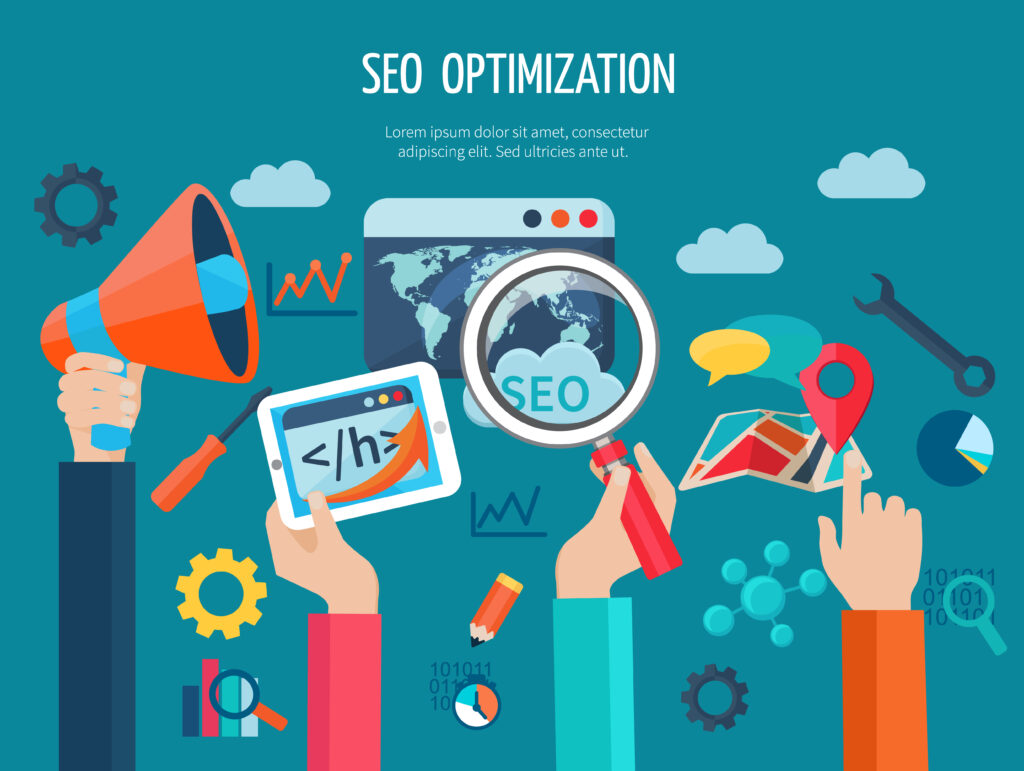In the vast landscape of digital marketing, B2B content marketing stands out as a powerful tool for businesses to connect with their target audience. It’s not just about promoting products or services; it’s about building relationships, establishing authority, and providing value. However, navigating this complex terrain requires more than just creativity—it demands a well-structured plan. This is where the B2B Content Marketing Strategy Checklist comes into play.
Crafting a successful content marketing strategy is like embarking on a journey. Without a map or a guide, you might lose your way. In the same vein, a B2B Content Marketing Strategy Checklist serves as your compass, ensuring that every step you take contributes to your overall success. Let’s delve into the world of B2B content marketing and explore the importance of having a strategy checklist to guide your efforts.
What Is a Content Marketing Strategy?
At its core, a content marketing strategy is a roadmap that outlines how a business plans to use content to achieve its goals. It goes beyond creating random pieces of content; it involves a thoughtful approach to connect with the target audience, provide valuable information, and ultimately drive desired actions. A well-crafted strategy ensures that every piece of content aligns with the overall business objectives.
Example: Consider an e-commerce brand aiming to boost online sales. Their content marketing strategy might involve creating blog posts about product features, engaging videos showcasing product usage, and visually appealing infographics to highlight special promotions. By doing so, they cater to different audience preferences and increase the likelihood of conversions.
B2B Content Marketing Strategy Checklist
Navigating the B2B content marketing landscape requires a well-orchestrated plan. Let’s break down the key elements of an effective B2B content marketing strategy checklist.
1. Understand Your Audience Inside Out
Before you start crafting content, it’s essential to understand your audience deeply. Identify their pain points, challenges, and preferences. What keeps them up at night? Knowing your audience allows you to tailor your content to resonate with their needs. Conduct surveys, interviews, and analyze data to build robust buyer personas.
2. Set Clear and Measurable Goals
Begin with the end in mind. What do you want to achieve with your B2B content marketing efforts? Whether it’s lead generation, brand awareness, or thought leadership, set clear and measurable goals. Establish key performance indicators (KPIs) to track your progress and evaluate the effectiveness of your strategy.
3. Define Your Unique Value Proposition (UVP)
What sets your business apart from the competition? Clearly articulate your Unique Value Proposition (UVP) in your content. Communicate how your products or services solve your audience’s problems better than anyone else. Make it concise, compelling, and consistent across all your marketing materials.

Image Source – Link
4. Conduct a Content Audit
Take stock of your existing content. Evaluate what has worked well and what needs improvement. Identify content gaps and opportunities for optimization. A content audit helps you align your future content with your overall strategy and ensures a consistent brand voice.
5. Develop a Content Calendar
Consistency is key in content marketing. Develop a content calendar that outlines your publishing schedule, topics, and distribution channels. This helps you maintain a steady flow of content and ensures that you cover a diverse range of subjects relevant to your audience.
Image Source – Link
6. Leverage Different Content Formats
Variety is the spice of content marketing. Experiment with different content formats such as blog posts, whitepapers, case studies, infographics, videos, and podcasts. Different formats cater to different preferences within your target audience, enhancing your overall reach and engagement.
7. Optimize for SEO
Make friends with search engines. Conduct keyword research to understand what your audience is searching for. Optimize your content with relevant keywords, meta tags, and quality backlinks. SEO-friendly content not only improves your search rankings but also enhances the user experience.

Image Source – Link
8. Embrace the Power of Visuals
Humans are visual creatures. Integrate compelling visuals into your content to enhance engagement. Infographics, charts, and high-quality images not only make your content more attractive but also help convey complex information more effectively.
9. Personalize Your Content
Tailor your content to specific segments of your audience. Personalization goes beyond just using a recipient’s name in an email. Use data to create targeted content that speaks directly to the unique needs and interests of different segments within your B2B audience.
10. Invest in Thought Leadership
Position your brand as an industry authority by investing in thought leadership content. Publish insightful articles, participate in industry discussions, and showcase your expertise through webinars and podcasts. Establishing thought leadership builds trust and credibility with your B2B audience.
11. Engage on Social Media
B2B buyers are active on social media platforms. Develop a social media strategy to share your content, engage with your audience, and participate in relevant industry conversations. Social media is a powerful tool for amplifying your content and building a community around your brand.

Image Source – Link
12. Incorporate User-Generated Content
Encourage your audience to become content creators. User-generated content (UGC) not only provides social proof but also fosters a sense of community around your brand. Run contests, encourage reviews, and share customer success stories to leverage the power of UGC.
13. Implement Marketing Automation
Streamline your content distribution with marketing automation tools. Schedule posts, segment your audience, and analyze performance metrics. Automation not only saves time but also ensures that your content reaches the right people at the right time.
14. Monitor and Analyze Performance
Regularly monitor the performance of your content against your established KPIs. Use analytics tools to track website traffic, engagement, and conversion rates. Analyzing performance data allows you to fine-tune your strategy, identify trends, and make data-driven decisions.
15. Stay Agile and Adapt
The digital landscape is ever-evolving. Stay agile and be ready to adapt your B2B content marketing strategy based on industry trends, technological advancements, and shifts in your audience’s behavior. Flexibility is key to staying ahead in the competitive B2B landscape.
Conclusion
Crafting a stellar B2B content marketing strategy requires a delicate blend of creativity, data-driven insights, and adaptability. Use this checklist as a compass to guide your efforts in reaching and engaging your B2B audience effectively. Remember, it’s not just about creating content; it’s about creating content that resonates, adds value, and builds lasting relationships. Here’s to your B2B content marketing success!
FAQs on B2B Content Marketing Strategy Checklist
Let’s address some common queries surrounding B2B content marketing strategy.
What should a B2B marketing strategy include?
A comprehensive B2B marketing strategy should include clear goals, a deep understanding of the target audience, a well-defined content plan, and a robust distribution strategy. It should align with overall business objectives and be adaptable to industry trends.
What is B2B vs B2C content strategy?
While both B2B and B2C content strategies aim to engage audiences, the approach differs. B2B content often focuses on educating, building trust, and providing in-depth information, while B2C content is more emotional and geared towards driving immediate consumer actions.
How do you distribute B2B content?
B2B content distribution involves leveraging various channels such as social media, email marketing, and influencer outreach. Tailor your distribution strategy based on your target audience’s preferences and behaviors.
What makes B2B content successful?
Successful B2B content is tailored to the specific needs of the target audience, provides valuable insights, and establishes the brand as an industry authority. It should also be well-optimized for search engines and strategically distributed.
What are the benefits of B2B content marketing?
B2B content marketing offers numerous benefits, including increased brand awareness, lead generation, improved search engine rankings, and enhanced credibility. It also fosters long-term relationships with clients and positions the business as an industry thought leader.
